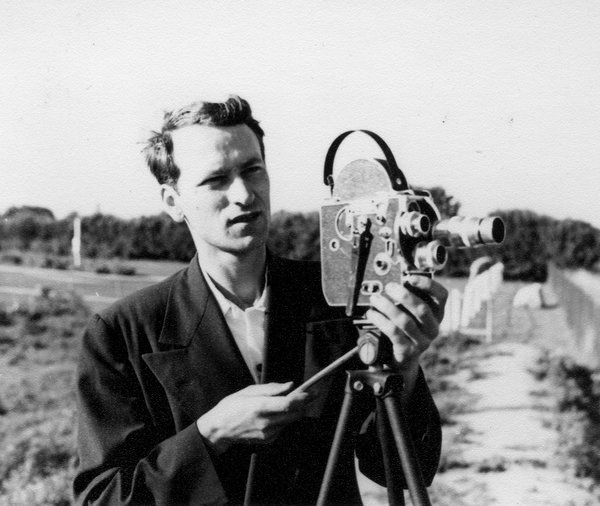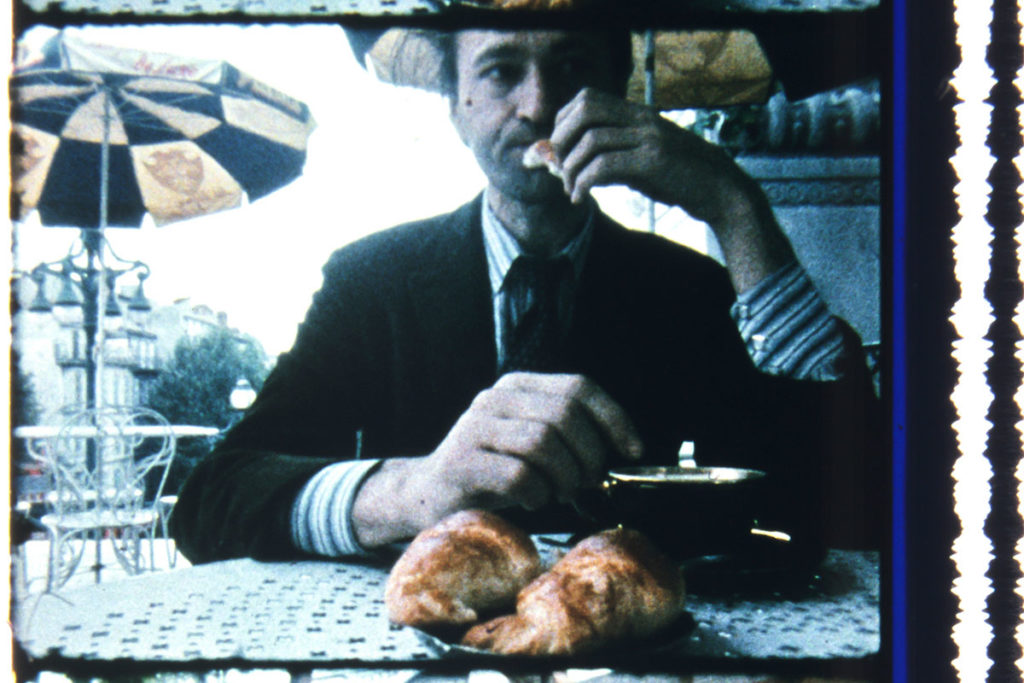Jonas Mekas (1922-2019) was born in the farming village of Semeniškiai, Lithuania. In 1944, he and his brother Adolfas were taken by the Nazis to a forced labor camp in Elmshorn, Germany. Following World War II, he studied philosophy at the University of Mainz in Germany. In 1949 the UN Refugee Organization brought both brothers to New York City, and they settled down in Williamsburg, Brooklyn.
Two months after his arrival in New York, Mekas borrowed money to buy his first Bolex camera and began to record brief moments of his life. He soon became deeply involved in the American avant-garde film movement. From 1954-1964, Mekas started Film Culture magazine, wrote a famous Movie Journal column in the Village Voice, and founded both the Film-Makers’ Cooperative and the Film-Makers’ Cinematheque, which eventually expanded to become the Anthology Film Archives, one of the world’s largest and most important repositories of avant-garde cinema. Mekas is largely credited for developing the diaristic forms of cinema.
During his lifetime, Mekas published more than 20 books of prose and poetry, which have been translated into over a dozen languages. His Lithuanian poetry is now part of Lithuanian classic literature and his films can be found in leading museums around the world. Mekas was also active as an academic, teaching at the New School for Social Research, the International Center for Photography, Cooper Union, New York University, and MIT.
Mekas’ film The Brig was awarded the Grand Prize at the Venice Film Festival in 1963. Other films include Walden (1969), Reminiscences of a Journey to Lithuania (1972), Scenes from the Life of Andy Warhol (1990), and many more. Following 2000, Mekas expanded his work into film installations, exhibiting at major galleries in New York, London, Paris, Stockholm, Kassel, St. Petersburg, Venice, Cologne, and more.



